Copyright Forms


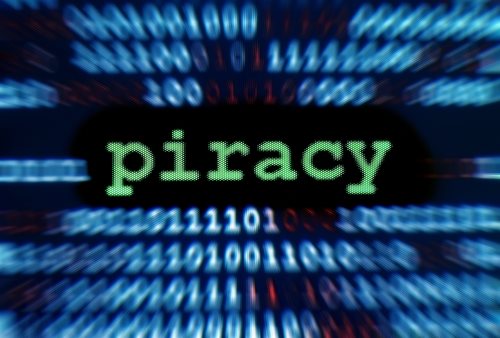
On November 2, 2012, Immigration and Customs Enforcement announced that Willie Lambert of Pittston, PA, and Sean M Lovelady of Pomona, California were sentenced to prison for their participation in an online piracy group. The group is called “IMAGiNE.”
Lambert received 30 months in prison and three years of supervised release, and he was ordered to pay $449,514 in restitution. Lovelady received 23 months in prison and three years of supervised release, and he was ordered to pay $7,500 in restitution. Each of the men pleaded guilty to one count of conspiring to commit criminal copyright infringement.
The IMAGiNE Group was a piracy ring that released copies of movies on the internet that were only in theatres.
Court documents show that Lambert and Lovelady admitted to entering movies theaters with receivers and recording equipment in order to record the audio sounds of the movies—called “capping.” After the two men received the audio content, they edited and synchronized the audio content with video that was illegally obtained as well. The edited content was then submitted to the IMAGiNE Group and shared on the file sharing network.
Two other co-defendants pleaded guilty to one count of conspiring to commit criminal copyright infringement. Jeramiah B. Perkins is scheduled for sentencing on January 3, 2013, and Gregory Cherwonik is scheduled for sentencing on November 29, 2012.
The investigation was led by the ICE’s Homeland Security Investigations (HSI) through the National Intellectual Property Rights Coordination Center located in Washington, D.C. The IPR Center is one of the most important tools used by the federal government to target and fight criminal counterfeiting and piracy. 21 different agencies participate in the IPR Center.
Assistant U.S. Attorney Robert J. Krask for the Eastern District of Virginia Senior Counsel John H. Zacharia with the Justice Department are in charge of prosecution.
Source: U.S. Immigration and Customs Enforcement

Legal Aspects of File Sharing
File sharing is not specifically illegal in the United States, but transmitting copyrighted material is illegal, and a number of lawsuits have been brought forth since file sharing began on the internet. Some of the first cases involved lawsuits connected with the file-sharing network Napster, and the Recording Industry Association of America (RIAA) has brought thousands of lawsuits against individuals along with other petitioners in the United States.
Examples of Online Copyright Infringement
The following types of online copyright infringement are often investigated and prosecuted:
· putting MP3 files on the internet within a file-sharing network so other people can download the music
· downloading unauthorized copies of copyrighted audio and video content, even if you don’t offer content to other users
· joining a file-sharing network that is not authorized to distribute or make copies of music or video content
· burning copyrighted CDs for your friends and peers
· email copies of music or videos to people you know
How does the Government Prove Liability in Copyright Infringement?
According to the Federal Trade Commission, the government needs to “prove that a defendant infringed a copyright willingly and for the purpose of commercial advantage or personal financial gain.” These legal aspects of file sharing apply to the creators of a file-sharing network and individuals who download and share content.
Even if the creators of the file-sharing network claim “willful blindness” about the content being distributed on their website, they are still liable for copyright infringement because they are profiting from the website and know that content is being shared. Individuals are liable because they achieve personal financial gain by saving money after downloading the free, copyrighted content.
Several operations have been launched by the federal government to impose the legal aspects of file sharing and bring individuals and websites that share files to justice. One of the biggest operations was launched by the U.S. Department of Justice called “Operation Digital Gridlock.” The operation resulted in the seizure of over 40 terabytes o pirated content.
Liability of Distributing Pornography
File-sharing networks can result in a person unintentionally distributing pornography and even child pornography files. The majority of file-sharing software is set up to automatically redistribute and make content available that was downloaded by a user. So, if an individual accidentally downloads a pornographic file, these files can be redistributed without their knowledge and they are liable for distributing pornography. Several cases were brought forth against affected defendants and resulted in heavy fines.
Industry Self-Regulation
As legal aspects of file sharing have caused multiple lawsuits to occur, file sharing is still occurring at an unprecedented pace. So, many internet providers have decided to start issue their own warnings. In October and November of 2012, major internet providers have begun to issue warnings before users download pirated content. There are a series of warnings, and prosecution is even threatened if downloading continues. The major internet providers can even slow down internet connections if the user refuses to stop downloading pirated material.
Source: https://www.ftc.gov/reports/p2p05/050623p2prpt.pdf

What is Web Scraping?
Web scraping is sometimes called data harvesting or site scraping and is a technique to retrieve data from a website or multiple websites. Scraping can occur by manually copying material from a website, but most scraping is conducted by complex software that can automatically access and retrieve data from websites.
There is a surprisingly few amount of lawsuits for the amount of scraping that occurs on the internet because the data retrieval borders between legal and illegal activity.
Examples of Web Scraping
Scraping comes in many different forms, but the examples listed below are common forms of scraping:
· obtaining emails from websites in order to launch spam emails
· using user information from social networking websites
· obtaining price and product information from a website to decrease their sales
· plagiarizing information from articles, blog posts, and published research
· relisting a website’s listings like job postings, phone listings, etc
Example of Lawsuit Involving Web Scraping
Feist Publications v. Rural Telephone Service Company
Rural Telephone Service Company is a public service that provides telephone service to communities in the northwest part of Kansas. The company publishes a telephone directory that has white and yellow pages. Feist Publications, Inc. is a company that publishes similar information for a larger range of people.
Rural refused to license its white pages to Feist, so Feist decided to extract the listing from Rural’s directory anyway. Feist altered many of these listing, but some were left the same, so Rural sued Feist for copyright infringement.
The Supreme Court ruled that the names, towns, and telephone numbers used by Feist were not originally produced by Rural. Therefore, the public information was not protected under copyright law. The Court ruled that the material in Rural’s white pages lacked the minimum amount of material needed for copyright protection because they failed to arrange and coordinate the material in an original way.
Numerous petitioners have sued for web scraping and won, however. Companies like American Airlines, Southwest Airlines, eBay, Facebook, and more have taken action against websites that harvested their data.
Ways to Prevent Web Scraping
The first and most obvious was to stop scraping is to threaten legal action unless the company or website ceases and desists the publication of the information. The following measures can help stop and prevent scraping from computer programs:
1. Use a JavaScript calculation to make sure the person accessing the site is actually a web user
2. Use a CAPTCHA (which requires the person to type in characters of distorted letters)
3. Use images or flash files and provide text by using a script or style sheet
4. Block a competitor’s IP address
5. Install software that can detect a scraping bot
6. Change your HTML tags along with URLS and tag names
7. Set up fake links to fictitious content to trap the scraper
Lastly, there is a large amount of software that websites can use to detect scrapers. If you’re concerned about the content of your website, considering looking into software that can deter scrapers.
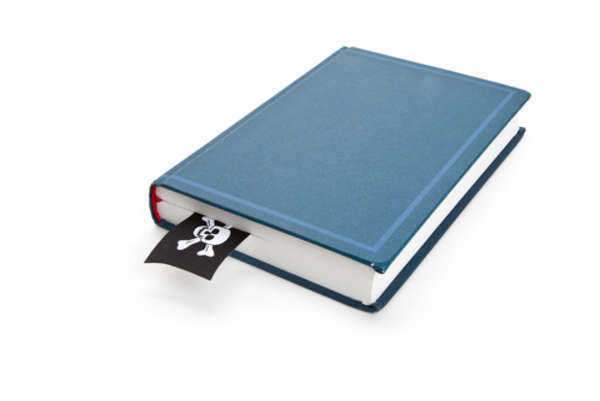
Summary of Lady Chatterley’s Lover
The novel was written by D.H. Lawrence, and it was first published in 1928 in Florence, Italy. The book created a huge amount of controversy in the United Kingdom, the United States, and other countries because of its sexual content, and the book was not printed in the United Kingdom until 1960.
The plot involved the relationship between a married upper-class woman and a working-class man she came to love. Constance, or Lady Chatterley, is married to a disabled war vet, and the emotional and physical distance between Constance and her husband cause her to start an affair with the gamekeeper, Oliver Mellors.
Lawrence was eventually praised for his incorporation of the mind and body theme as well as class disputes throughout the novel. Constance’s character is not satisfied with the mind alone, causing her to start a relationship with Mellors.
Crown v. Penguin Books Ltd: The Case Against Lady Chatterley’s Lover
Publishers in the United Kingdom refused to publish the novel, so Lawrence published the first copies of the novel in Florence, Italy in 1928. The novel was published the next year in Paris as well. Lady Chatterley’s Lover was finally published in the United Kingdom by Penguin Books, but a lawsuit shortly followed.
Penguin was accused of violating the Obscene Publications Act, and it could only distribute the book if acquitted of the charges.
During the trial, officials in the courtroom handed out copies of the novel and asked 12 members of the jury to read it. The book was not allowed to exit the jury room. The prosecution formed a large list of possible witnesses to condemn the book, but the defense had well known and powerful witnesses that argued for its merit. Notable witnesses included E M Forster, Cecil Day-Lewis, Rebecca West, and Richard Hoggart. John Robinson, the Bishop of Woolwich, even called the novel’s sex scenes “an act of holy communion.”
On November 2, 1960, the jury deliberated for three hours and acquitted Penguin Books of all the charges. Copies of the book began to sell immediately, but there were still social hostility toward the book.
Literary Reaction: Post- Lady Chatterley’s Lover
The novel by D.H. Lawrence still remains the most controversial novels of the 20th century. The novel’s content was debated in the United States, Australia, multiple countries in Asia, and more, but the book is considered a classic piece of literature now.
However, public reaction to content within books is still a pressing topic. Schools and communities still ban books because of their violent or sexual content—even though obscenity laws for published material in the United States have all but ceased to exist. The most recent example of controversy involves E.L. James’ book Fifty Shades of Grey. Opponents of the book have criticized the book’s content on BDSM (bondage, discipline, sadism, masochism) and sexual content. The book, however, remains extremely popular and has sold millions of copies.
Source: https://www.telegraph.co.uk/culture/books/8066784/Lady-Chatterley-trial-50-years-on.-The-filthy-book-that-set-us-free-and-fettered-us-forever.html
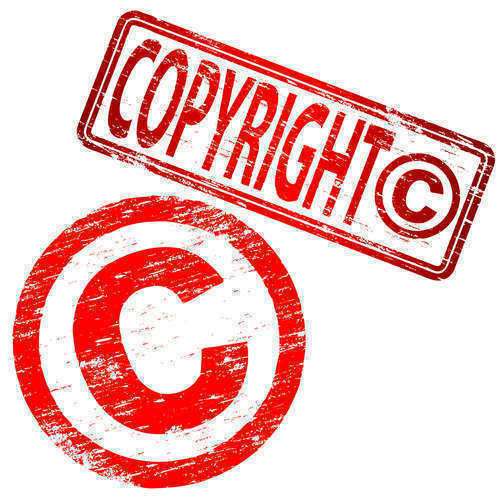
What is the Jumpman (logo)?
The Jumpman (logo) is used by Nike on merchandise that promotes Michael Jordan. The logo is most known on the Air Jordan brand of basketball shoes. The logo appeared in 1985 and was placed on all products with the “Jordan” brand.
Controversy over the Jumpman (logo)
On February 23, 2012, Michael Jordan issued a statement that announced he was filing a lawsuit against Qiaodan Sports Company Ltd in China. He claimed the company used his name and number without his permission.
The number 23 appears on a large amount of Qiadan’s merchandise, and the Jordan-like appearance has increased sales for the company over the years. Their advertisements, sportswear, and equipment resemble the Jumpman (logo) very closely, but the company still denies that they copied the trademark.
During his statement, Michael Jordon stated, “A Chinese sports company has chosen to build a Chinese business off my Chinese name without my permission. It pains me to see someone misrepresent my identity. He went on to say, “It is deeply disappointing to see a company build a business off my Chinese name without my permission, use the number 23 and even attempt to use the names of my children. I am taking this action to preserve ownership of my name and my brand.”
Qiaodan is means “little Jordan.” The lawsuit was accepted by Qiaodan Sportswear Co in May of 2012.
Similar cases have been brought against Chinese sporting goods companies by NBA players. For example, Yi Jianlian filed issued a complaint with the Chinese Trademark Review and Adjudication Board and won the case and appeal in 2010. Additionally, Yao Ming filed a case against another Chinese sporting goods company called Wuhan Yunhe after they tried to trademark a name that was associated with Yao Ming.
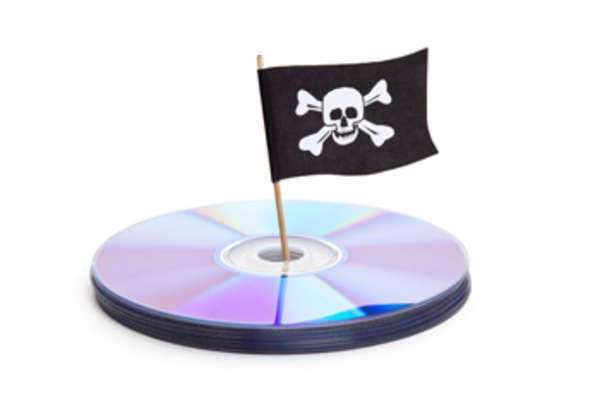
A brief guide to time shifting
"Time shifting" is a legal term which initially referred to recording made of broadcasts such as television programs via VHS and Betamax tapes. However, in recent years more issues related to time shifting have emerged, including MP3 music files and the distribution of podcasts.
The major legal issue involved in time shifting concerns "fair use" law and the possibility of copyright infringement. These issues were first raised in a dispute between Universal Studios in its capacity as a producer of television programming and Sony in its capacity as the manufacturer of Betamax video recorders. A 1979 Supreme Court case between the two established the foundations of time shifting law. Universal Studios argued that the Betamax video recorder violated its copyright laws by giving consumers the right to reproduce and maintain their own copies of the programming. The Supreme Court ruled in favor of Sony, a ruling which was subsequently challenged, overturned and reversed yet again by the Supreme Court in 1984.
As a result, the right of consumers to engage in time shifting practices for their own convenience has been established. This does not mean that consumers may record broadcasts and resell the video tapes or DVDs of these for commercial profit or gain. Rather, time shifting law simply allows for consumers to record a program and view it at their own convenience.
The introduction of digital video recording (DVR) applications such as Tivo has also been deemed legally acceptable for consumers. However, time shifting law regarding the ability to skip advertisements has not yet been fully clarified. Some providers, such as satellite TV companies, have introduced DVR features allowing consumers to skip over advertising entirely when watching a program which has been recorded to their DVR. The legality of this service, for which an extra fee can be assessed, has been challenged by television broadcasters, who assert that this form of time shifting is a violation of their copyright. As of October 2012, the law in this area remains ambiguous.
In recent years, the emerging popularity of downloadable podcasts that can be played at the convenience of listeners has created a new set of issues related to time shifting. Since such podcasts are placed onto MP3 players, computers or other devices and played at the listener's convenience, the issue of how to charge for advertising and profit from them has been a matter of concern. However, the legality of podcasts and their relationship to time shifting law has not been challenged.
"Time shifting" can also refer to the practice of broadcasting television programming at different times. Some broadcasters offer different feeds for providers across the country tied to each time zone, while other broadcasters only offer one feed. This means, for example, that a television broadcast beginning at 8 pm on the east coast would begin at 5 pm on the west coast. Broadcasters have complete legal discretion in deciding what types of feeds to offer.
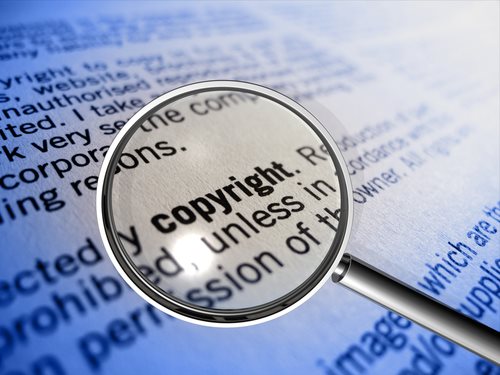
On October 18, 2012, the Center for Copyright Information (CCI) announced that internet providers will start warning customers over the next two months if they are about to download pirated content. The messages will repeatedly warn internet users in an attempt to stop the large amount of illegal downloads on the internet despite heavy recent sentences for some defendants.
AT&T, Comcast, Verizon, Cablevision, and Time Warner will start sending these messages in the next two months.
If you try to download illegal content, the first alerts will appear educational. The internet user will then have to notify their internet provider that they received the messages. If the internet user still attempts to download copyrighted material, a warning containing “mitigation measures” will come next. Each internet provider has their own mitigation measures, but some of the common measures include a review of the educational notices and even a slowed internet access speed.
Although numerous reports stated a “six strikes and you’re out” policy, the termination policy is not part any internet provider’s Copyright Alert System. Litigation may ensue though.
The Copyright Alert Systems want to teach internet users how to access copyrighted content legally instead of punishing users who accidentally download pirated content. The CCI admits the line between legal and illegal content is sometimes vague, so they’ve announced that a new CCI website will soon launch to help internet users learn about legal and illegal content on the web.
CCI expects some errors during the first stages of the new Copyright Alert System, but they have a process that can easily detect and correct errors. CCI is using a review program under the American Arbitration Association (AAA) to find and correct errors, and CCI stresses the fact that all information about internet users is kept confidential.
Source: Center for Copyright Information

On November 5, 2012, the US Attorney’s Office for the District of New Jersey announced that one of the owners of the test prep company, called Optima University, made her initial appearance in a New Jersey Court after she was extradited from Latvia. She is accused of stealing licensing examination questions from the National Board of Medical Examiners that are currently used on medical licensing tests.
The defendant’s name is Egija Kuka and she operated the business in Totowa, New Jersey with her former husband, Eihab Suliman. Each of the defendants is charged with mail fraud, wire fraud, and conspiracy. Eihab Suliman is considered a fugitive.
According to court documents, Optima University helped students prepare for the U.S. Medical Licensing Examination (USMLE). The test is used to assess if international graduates from medical school are ready to practice medicine in the United States. The test questions are copyrighted and are not allowed to be reproduced.
On December 2, 2007, Kuka applied to take the USMLE in Milan, Italy, after she lied and said she graduated from the University of Oradea (a medical school in Romania). She forged a diploma from the university along with a Certification of Identification Form.
Kuka proceeded to take Steps 1 and 2 of the USMLE on April 7 and April 14 of 2008. Video surveillance used for the test proved that Kuka used a small video recording device to record the questions that were displayed on the computer screen. Kuka sat in on Step 1 again on May 28, 2008.
Authorities conducted a search at Optima University on May 28, 2008 and found that the company was using the live questions recorded by Kuka. She now faces 6 counts in the indictment, and she can receive up to 20 years in prison and a $250,000 fine for each count.
Source: Federal Bureau of Investigation